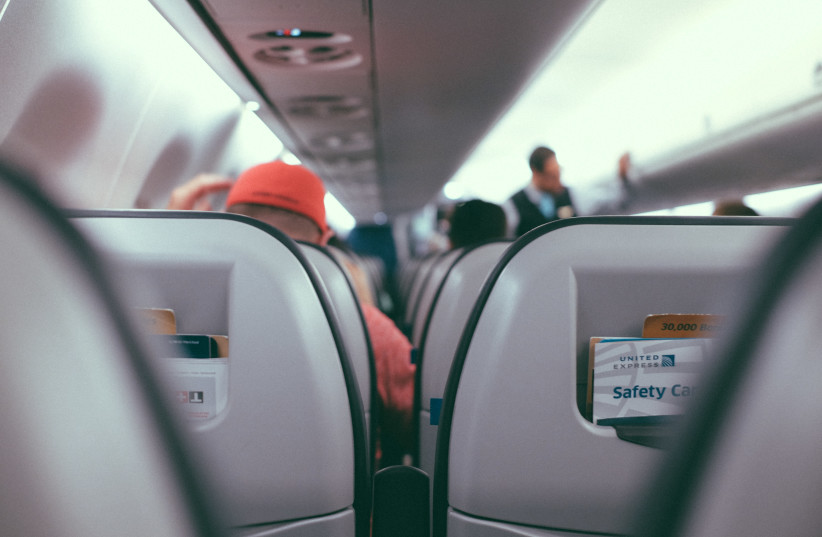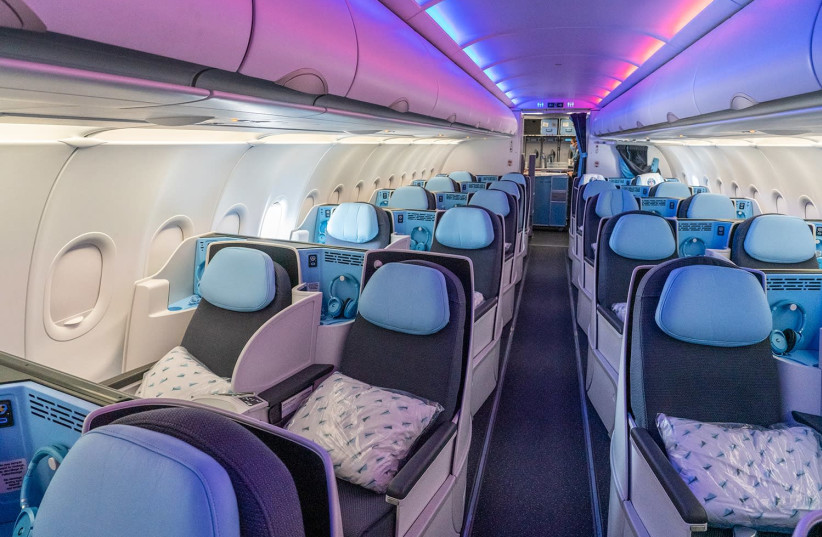We all know that flying can be pretty stressful, but dealing with long flights can be doubly stressful. Chris Major, a British flight attendant with 24 years of experience, was interviewed by the Australian website 7News and provided plenty of tips and ideas to help you survive all those long hours in the air.
Is it worth eating on overnight flights?
If you find yourself on an overnight flight and want to maximize your sleep, Major suggests eating before boarding. This is especially important in the relatively short flights of the long-haul flight category.
For example, on flights that are five or six hours long, you want to get as much sleep as possible and thus get most of your time on the plane. "Most business class passengers close their eyes as soon as they get on the plane," he says. "So do the experienced passengers in the economy class."
However, it must be admitted that it's not always possible to grab a meal before boarding the plane, either due to tedious arrangements at the airport or due to long queues.

When should you eat?
If you are on a long flight, most likely you will be offered more than one meal. Sometimes, especially when crossing multiple time zones, meal times can seem a little confusing.
So, are you supposed to eat every time you're offered food? Or maybe it's better to postpone the meal if you aren't hungry, or if you're trying to sleep?
Major argues that everyone should do what is right according to their personal schedules and in any case - if you are exhausted, it is better to sleep than to force yourself to eat dinner at three in the morning.
Should you bring a pillow for the flight?
Airlines usually provide pillows for passengers on long flights, but Major says it's a good idea to bring your own eye mask, travel pillow and even a blanket.
"Eye masks are great if you're trying to sleep with the lights on," he says. "Plus, many people will prefer their travel pillow to the pillow provided by the airlines."
Additionally, although it is rare, there is always a chance that the airlines will run out of pillows. And that can definitely be a problem on a 14-hour flight.
And if you can't sleep?
Many of us have difficulty sleeping on airplanes, either because of the noise or due to limited legroom and being forced to sleep in a relatively upright position - which happens for many people in economy seats.
So, should you continue to try to fall asleep or devote yourself to watching the movie?
"There's no point trying to force sleep, especially if your biological clock 'thinks' it's the middle of the day and you're just not tired."
However, according to him, you should take into account what awaits you at the end of the flight: If you get off the plane and immediately start driving or attend a meeting, you should try and rest as much as possible during the flight.
How do you stay fresh?
We've all experienced the same mid-flight awakening, groggy walk to the bathroom and trying to freshen up.
Major's tip for feeling fresh may sound obvious, but he insists this action makes a huge difference: "Brushing your teeth is the most refreshing thing, and this is true for everyone."
Is it worth doing physical activity on the flight?

Sitting in the same upright position for hours on end is definitely not comfortable, but on the other hand, it's not always easy to get up and do stretches. Major emphasizes that even a slight wiggle of the toes while sitting can help.
"Move in your seat, move your legs, do what comes naturally to you," he says. "Regarding people with blood circulation problems, it is recommended to consult a doctor before the flight."
Taking off your shoes
For many travelers, this is definitely a controversial question because of this matter of unpleasant odors. But Major encourages anyone on a long-haul flight to remove shoes for comfort, as well as to help circulate the blood optimally.
"We, the flight attendants, do it ourselves," he says. "It's the right thing to do if you're boarding a long-haul flight. Hopefully, of course, you're decent enough to take a shower before you get on the plane and put on clean socks.
"And if you still suspect that your feet will smell, go to the bathroom and clean them. What really bothers us as flight attendants are passengers who 'put' their legs out into the aisle between the seats. And if they're wearing black socks, there's a chance we won't notice them - and we'll trip."
What is the best seat on the plane?
If you're worried about "air pockets", Major recommends trying to sit in the front of the plane. According to him, in certain situations, you won't feel anything, while in the back of the airplane, the air pockets will be felt.
"The plane moves very differently in the back," he says. For all passengers, it is recommended to book the seats in the emergency exit area, thanks to the generous legroom.
However, keep in mind that in these seats it is not possible to place handbags and other objects under the seat. And there's another thing: Airlines charge extra for seats with extra legroom.
"My personal choice on long flights is a window seat. I can lean against the window and fall asleep - which you can't do in the middle seat or the aisle seat."
What about headphones?
The way we consume TV shows and movies has changed dramatically in the last decade, but in-flight entertainment has remained unchanged. That's why many travelers prefer to do a prolonged binge of series pre-downloaded to their personal devices.
"Your devices, with your headphones, are also an adequate backup in case your in-flight entertainment system doesn't work properly, which certainly happens sometimes."
Should I bring snacks?
"Definitely. Many passengers forget the fact that on most flights, they don't distribute food for the first hour and sometimes even after an hour and a half or more. It's important to bring your own food if you have diabetes, for example. Also, it's important to stock up on snacks if you're traveling with children."
Dealing with children on long flights
"There is no doubt that if you're stressed on the flight, your children will also be stressed. In any case, the air crew members are experienced in dealing with children and parents in flight.
"For example, when a baby cries, the parents get scared and the other passengers grumble. I will always handle such a situation in the same way and speak in a way that everyone around can hear me. I say: 'Don't worry about the baby's crying, it will only help him balance the pressure they feel in their ears. They can only do this by screaming.' And so, by calming the parents, the children will also relax."
Get the best out of layover
If you have a layover of a few hours, you should book a hotel room at or near the airport to take a nap. An intermediate stop is also a good opportunity to stretch, especially the lower body.
Particularly long flights
The longest flight that Major worked as a flight attendant was 14 hours long. And it's also interesting to discover that the longest regular flight operating today is the New York to Singapore flight from Singapore Airlines, which is 18 hours and 40 minutes long.
The Australian airline, Qantas, is expected to launch 19-hour flights on the New York-Sydney and London-Sydney routes.
"That means you'll be missing two nights of sleep. We don't yet understand the impact of such long flights, but this is actually the evolution of flight. We already have the planes that can do it, now we have to find ways to deal with it."
